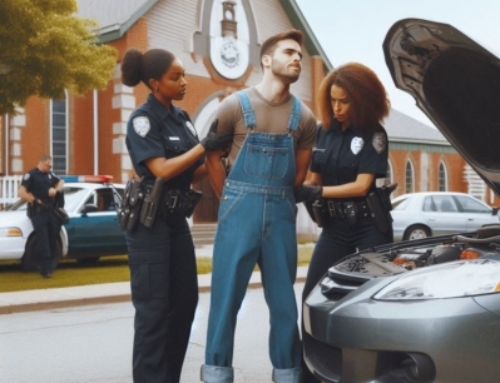Be The Bush Recovery Ministries V. Coffee County Tennessee
Case Background
On March 2, 2024, Be the Bush filed a civil rights action against Coffee County alleging violation of the Fair Housing Act and Americans with Disabilities Act (ADA) before the United States District Court, Tennessee Eastern (Winchester). The case was assigned to District Judge Curtis L Collier and referred to Magistrate Judge Susan K Lee. [Case number: 4:22cv16]
Cause
Be the Bush, a faith-based residential rehabilitation program for men recovering from addiction, has operated since September 1, 2018. It aims to provide long-term recovery through community support, biblical counseling, job skill development, and accountability. Founded by Caleb McCall, Be the Bush is not a detox facility and does not offer medical treatment or house individuals who are criminally dangerous or mentally ill.
In late 2021, Be the Bush sought to purchase an 8-acre property in Coffee County, Tennessee, but encountered zoning challenges. The property, currently owned by the Keats, was previously an elementary school. Be the Bush planned to use the property for its residential program but faced opposition because of zoning restrictions. The RS-1 low-density residential zone allowed single-family dwellings and educational facilities but excluded religious facilities.
Be the Bush proposed an amendment to allow their program as a “Non-profit Church, ministry, and/or other religious facility” by special exception. The County’s Planning Commission rejected this proposal in October 2021. A revised proposal was also denied by the County Commission in January 2022, despite support from legal experts highlighting potential violations of federal laws such as the Tennessee Religious Freedom Restoration Act and the Fair Housing Act.
On January 18, 2022, the City of Tullahoma informed Be the Bush that its use would be classified as a “special institutional care facility,” which is only permitted in the C-2 General Commercial District. Be the Bush contended that their use is similar to permitted group care facilities and does not fit this classification.
These zoning decisions severely impacted Be the Bush’s mission, potentially causing the loss of an $800,000 loan from a supporter. The organization has requested that the County address these issues and grant access to appropriate residential zones.
Damages
The Plaintiff respectfully requested the following relief from this Court:
(a) A declaration that the Defendant’s zoning resolution, both as written and as applied, was discriminatory, illegal, and unconstitutional. This resolution violated the United States Constitution, the Fair Housing Act, the Americans with Disabilities Act, and the Religious Land Use and Institutionalized Persons Act of 2000.
(b) A declaration that the Defendant’s denial of a reasonable accommodation to the Plaintiff was illegal and unconstitutional, breaching the Fair Housing Act, the Americans with Disabilities Act, and the United States Constitution.
(c) Permanent injunctive relief to prevent the Defendant from applying the County’s laws, practices, and policies to the Plaintiff’s property in an illegal or unconstitutional manner. This includes halting any application of these laws that burdens the Plaintiff’s religious exercise or discriminates against them, as well as stopping the Defendant from obstructing the Plaintiff’s constitutional and statutory rights.
(d) A reversal of the denial of the Plaintiff’s proposed amendment to the zoning resolution and authorization of the use of the property as a non-profit residential ministry in the RS1 zoning district.
(e) A declaratory judgment and/or an injunction under 42 U.S.C. § 1983.
(f) An award of $500,000 in monetary damages to the Plaintiff, along with any special damages resulting from the Defendant’s conduct as described in the Complaint.
(g) An award of nominal damages to the Plaintiff.
(h) An award of attorney fees and costs as provided by federal statute.
(i) Any other relief the Court considers just and appropriate.
Key Arguments and Proceedings
Legal Representation
- Plaintiff(s): Be the Bush Recovery Ministries
- Counsel for Plaintiff(s): Abigail A Southerland | Benjamin P Sisney | Mark Goldfeder | Olivia F Summers | Stuart Roth | Frank Clinton Little
- Defendant(s): Coffee County, Tennessee
- Counsel for Defendant(s): Gina Sarli Vogel | Jeffrey R Thompson
Claims
The Defendant’s actions prevented the Plaintiff from providing necessary housing to individuals recovering from alcohol and drug addiction. By excluding Plaintiff from all residential zoning districts in the County and rejecting a proposed zoning amendment for reasonable accommodation, Defendant allegedly violated Plaintiff’s rights under the Americans with Disabilities Act (ADA), 42 U.S.C. Sec. 12132 et seq., and related regulations. Specifically, the Defendant discriminated against the Plaintiff and its residents by:
a. Using land resolutions to unfairly target the Plaintiff based on their handicap;
b. Denying housing and making it unavailable to those seeking help from the Plaintiff due to their disability;
c. Preventing the Plaintiff and its residents from equally participating in public services, programs, or activities.
Additionally, Defendant’s actions infringed on Plaintiff’s right to freely exercise religion, as protected by the Religious Land Use and Institutionalized Persons Act of 2000, through the enforcement of restrictive land use regulations. The County’s zoning resolution was unconstitutional, and Defendant’s refusal to amend it was exclusionary, arbitrary, capricious, and lacked rational basis. Furthermore, Defendant treated Plaintiff differently compared to similarly situated individuals and property owners, thereby violating Plaintiff’s right to equal protection under the Fourteenth Amendment to the U.S. Constitution.
Defense
Coffee County initially employed a procedural defense, claiming that, regardless of whether it had engaged in discrimination, the issue was now moot. Be the Bush had moved from the Tullahoma location, which it sold, and was now operating in Bedford County. Be the Bush argued that it had suffered damages because the new location was smaller and required significant renovations. The trial court dismissed the government’s mootness argument.
Next, Coffee County defended itself on its merits and denied any discrimination. It asserted that the zoning distinction was neutral and not intended to target individuals with addiction issues. Instead, it was aimed at the category of “group living.” Additionally, the government contended that it would face a burden if it could not plan its growth and neighborhood development strategically.
Jury Verdict
On May 8, 2024, the Tennessee jury deliberated for four hours in this case. They first considered whether Be the Bush had demonstrated that its residents were disabled under the Fair Housing Act and the ADA. The jury answered yes to this question. However, the jury cleared Coffee County of wrongdoing, finding that it had provided a reasonable and necessary accommodation. Consequently, the jury did not determine any damages, whether nominal or compensatory.
On March 13, 2024, Judge Curtis L. Collier entered a judgment consistent with the defense verdict.
Court Documents:
Available upon request







Leave A Comment